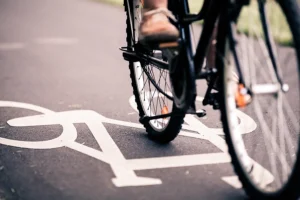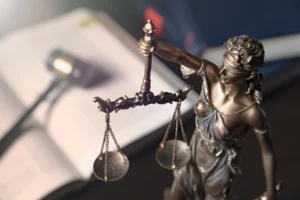Florida Bicycle Accident Lawyers

Were you hurt in a bicycle accident? You may be entitled to compensation for any costs you incur as a result of the incident. Our bicycle accident lawyers in Florida can help you fight for fair compensation and avoid mistakes that would delay the proceedings.
We offer free consultations, and no fees are charged unless you win. Speak with a member of our team today by calling 866-349-2912.
Factors that Will Influence the Value of Your Bicycle Accident Claim
After being involved in a serious bicycle accident, you may find yourself facing a long road to recovery—physically, emotionally, and financially. Mounting medical bills, lost income, and other unexpected expenses can quickly create a significant financial burden, especially if your injuries prevent you from returning to work or resuming your normal life. In the midst of this stress, one of the most common questions victims have is: How much is my Florida bicycle accident claim worth?
Unfortunately, there is no one-size-fits-all answer. Each case is unique, and the value of your claim will depend on a wide range of factors. However, an experienced Florida bicycle accident attorney can help estimate the potential value of your case by assessing the details of your situation, consulting expert witnesses, and thoroughly reviewing evidence such as your medical records and accident reports.
Below, we’ll explore several key factors that may influence the value of your bicycle accident claim in Florida.
The Severity of Your Injuries
The extent of your injuries will have a significant impact on the amount of compensation you may be entitled to receive. Bicycle accidents often result in serious, life-altering injuries, such as:
-
Traumatic brain injuries
-
Spinal cord injuries
-
Broken bones
-
Internal bleeding
-
Deep lacerations and road rash
-
Permanent disability or disfigurement
Severe injuries often lead to longer recovery times, multiple surgeries, ongoing rehabilitation, and a higher likelihood of long-term complications. These consequences can lead to substantial medical costs over time. In cases involving catastrophic injuries, you may also require lifelong care, mobility aids, home modifications, and other ongoing services.
When calculating damages, your attorney will assess not only your current medical expenses but also future costs related to your care. The more extensive and lasting your injuries, the more compensation you may be able to claim.
Loss of Income and Earning Potential
Many bicycle accident victims are forced to take time off work while they recover. Depending on the nature of your injuries, this could be a matter of weeks—or it could mean the end of your ability to continue working altogether.
If your injuries prevent you from returning to your job—either temporarily or permanently—you may be able to seek compensation for:
-
Lost wages from missed workdays
-
Lost benefits, bonuses, or commissions
-
Loss of future earning potential
-
Reduction in your capacity to earn income in the same field or role
To prove this loss, your attorney may work with vocational experts and financial professionals to determine the value of your future earnings and help ensure your claim reflects the true impact of your injuries on your long-term career.
Non-Economic Damages
Not all damages after a bicycle accident are purely financial. In many cases, victims endure significant emotional, psychological, and physical suffering. You may be unable to participate in activities you once enjoyed, maintain relationships, or care for yourself independently. This type of suffering is categorized as non-economic damages.
Common examples include:
-
Pain and suffering
-
Emotional distress
-
Anxiety or depression
-
Loss of enjoyment of life
-
Disfigurement or permanent scarring
-
Loss of consortium (impacts on your relationship with your spouse)
Because these types of losses are subjective and more difficult to quantify, they can be challenging to prove. Your attorney may recommend that you keep a personal injury journal to document your daily pain levels, limitations, emotional struggles, and how your injuries have disrupted your quality of life. This firsthand account can help support your claim for non-economic damages and provide valuable context to judges, juries, and insurance adjusters.
Your Liability and Comparative Negligence
In Florida, your role in the accident will also influence the outcome of your claim. Under Florida’s modified comparative negligence rule, you can still recover damages even if you were partially at fault for the accident—as long as you are found to be 50% or less responsible. However, your compensation will be reduced in proportion to your share of the fault.
For example, if you were awarded $100,000 but were found to be 20% at fault for the accident (perhaps for failing to obey traffic signals), your award would be reduced to $80,000. If your fault exceeds 50%, however, you may be barred from recovering any damages under current Florida law.
This is why it’s so important to take the right steps after an accident. The insurance company will be looking for any reason to reduce your payout or deny your claim. If you don’t follow your doctor’s recommendations, miss appointments, post about your injuries on social media, or fail to document your damages, the insurer may argue that you contributed to the extent of your injuries or failed to mitigate damages—both of which can impact your financial recovery.
Evidence and Documentation
Strong evidence can significantly strengthen your bicycle accident claim. The better documented your injuries, expenses, and circumstances of the accident, the easier it will be for your attorney to build a compelling case. Important forms of evidence may include:
-
Medical records and treatment plans
-
Police or accident reports
-
Photos of the accident scene, your injuries, and property damage
-
Witness statements
-
Surveillance footage or dashcam video
-
Pay stubs and employment letters
-
Expert testimony from doctors, economists, or vocational specialists
-
Your personal injury journal
The more comprehensive your evidence, the greater your chances of securing a full and fair settlement that reflects the true cost of your losses.
The Insurance Policy Limits
Even if your damages are extensive, your compensation may be limited by the at-fault party’s insurance coverage. For instance, if the driver who hit you only carries the minimum liability coverage, and your damages exceed that amount, you may have difficulty recovering the full value of your claim unless there are additional sources of compensation.
Your attorney may look into other options, such as:
-
Filing a claim against multiple liable parties (e.g., the driver and a negligent third party)
-
Pursuing a claim through your own uninsured/underinsured motorist (UM/UIM) coverage
-
Investigating whether a defective bicycle part or road hazard contributed to the crash
An experienced attorney will know how to uncover every potential avenue for compensation and maximize your recovery.
Steps to Help Strengthen Your Case
After a serious bicycle accident, one of the first questions you may have is, “How long will it take to get my settlement?” Unfortunately, the answer isn’t always straightforward. Personal injury cases—especially those involving substantial damages and complex liability issues—can take weeks, months, or even over a year to resolve. During this time, you might face mounting medical bills, lost income, and emotional stress that can make the wait even harder.
While many factors influencing the timeline of your case are outside of your control, there are still important steps you can take to support your Florida bicycle accident lawyer and potentially speed up the process. These proactive measures can not only help ensure a smoother legal journey, but they can also improve your chances of recovering the maximum compensation you deserve.
Here are several key ways you can assist your attorney and protect the strength of your claim:
Attend All Your Doctor’s Visits and Follow-Ups
After a bicycle accident, your first priority should always be your health. Attending medical appointments might seem daunting when you’re in pain, emotionally drained, or trying to juggle your responsibilities at home. However, following through with your treatment plan is not only essential for your recovery—it also plays a major role in your legal case.
When you miss scheduled appointments, skip recommended procedures, or stop treatment early, it opens the door for the insurance company to question the severity of your injuries. They may argue that your condition couldn’t have been very serious if you didn’t require ongoing care, or that your own negligence contributed to your injuries getting worse. These arguments could ultimately reduce the amount of compensation you receive—or even jeopardize your ability to recover any damages at all.
To avoid these complications, make sure to:
-
Attend all follow-up appointments with specialists.
-
Complete your prescribed physical therapy or rehabilitation.
-
Follow medication instructions carefully.
-
Keep a record of your treatments, appointments, and any medical advice received.
Doing so will help create a clear, consistent medical record that your attorney can use to demonstrate the seriousness of your injuries and your commitment to healing.
Keep Thorough Records of All Evidence
Strong evidence is the cornerstone of a successful bicycle accident claim. Your attorney will investigate your case, gather supporting documents, and consult experts if necessary—but you can also play a crucial role by keeping a detailed file of all evidence related to your accident, injuries, and financial losses.
Here are some types of evidence you should gather and organize:
-
Medical records and bills: Include emergency care, hospital visits, diagnostic tests, medications, rehabilitation, and any specialist appointments.
-
Photographs: Take photos of your injuries, your damaged bicycle, the scene of the accident, and any road hazards or signage that might be relevant.
-
Accident report: Obtain a copy of the official police or accident report filed at the scene.
-
Eyewitness statements: If anyone saw the accident happen, try to get their name and contact information so your attorney can follow up with them.
-
Pay stubs and employer letters: These documents help show your lost income and any future work limitations.
-
Receipts for out-of-pocket expenses: Include anything related to your injury, such as over-the-counter medical supplies, mobility aids, or transportation costs.
-
Personal injury journal: This can be a daily or weekly record of your pain levels, limitations, emotional struggles, and how your injury affects your day-to-day life.
Having a complete and organized collection of evidence will give your attorney the tools they need to build a strong case and reduce delays caused by missing or incomplete documentation.
Refrain from Using Social Media
After an accident, you might be tempted to keep your friends and family informed by posting updates online. However, social media can be a serious threat to your claim. Insurance adjusters and defense attorneys often monitor claimants’ social media profiles for any posts, photos, or comments they can use to undermine the case.
For instance, if you post a smiling selfie at a family barbecue, the insurer might argue that you’re not as injured as you claim. Even something as simple as checking in at a restaurant or sharing a throwback photo of a hiking trip could be misinterpreted and used against you.
To protect your claim:
-
Avoid posting any updates, pictures, or check-ins related to your recovery or lifestyle.
-
Do not discuss your accident, injuries, or legal proceedings online.
-
Ask family and friends not to tag you in posts or photos.
-
Set your social media accounts to private, but remember that this is not a guarantee of privacy.
The best approach is to stay off social media entirely while your case is ongoing. Even seemingly innocent posts can be taken out of context and used to damage your credibility.
Stay in Regular Communication With Your Attorney
Your attorney is your advocate throughout this process, and keeping the lines of communication open is crucial. Be prompt in responding to your lawyer’s phone calls, emails, or requests for information. Delayed communication can slow down your case or lead to missed opportunities for a quicker resolution.
If you receive any new information—such as additional medical diagnoses, witness contact details, or correspondence from the insurance company—share it with your lawyer right away. Staying engaged and responsive shows that you are serious about your case and helps your attorney move forward without unnecessary delays.
Avoid Speaking With Insurance Adjusters
Once you hire an attorney, all communication with insurance companies should go through them. Insurance adjusters may try to contact you directly, asking for a recorded statement or offering a quick settlement. It’s important to understand that these individuals are trained to minimize payouts and may try to twist your words or get you to accept a low offer.
If you are contacted, politely decline to comment and refer them to your attorney. This will help you avoid saying something that could be used against you later and ensure that any negotiations are handled strategically by your legal team.
Be Honest and Transparent About Your Injuries
Exaggerating your injuries or omitting details about your medical history can backfire and harm your credibility. Insurance companies will scrutinize your records, social media activity, and even your past medical treatments to find inconsistencies. Always be upfront with your attorney about your symptoms, prior injuries, and how the accident has affected your life. This transparency allows your lawyer to prepare for any potential challenges and protect your claim effectively.
Let Your Attorney Handle the Legal Strategy
It’s natural to want to be involved in your case, especially when the stakes are high. However, it’s best to let your attorney take the lead when it comes to legal decisions. Avoid trying to negotiate directly with the insurance company, signing documents without review, or making assumptions about how the case should proceed.
Instead, focus your energy on healing and following your doctor’s advice. Trust your attorney’s experience—they are trained to navigate the complexities of Florida’s personal injury laws and fight for the best outcome on your behalf.
Consult a Bicycle Accident Lawyer in Florida Today
While the resolution of your Florida bicycle accident case may take time, your actions can significantly influence the strength and speed of your claim. By staying involved, following your treatment plan, preserving evidence, and avoiding social media pitfalls, you can help your attorney build a compelling case that supports the full value of your damages.
If you have any questions about your role in the process, don’t hesitate to ask your attorney. Contact our office at 866-349-2912 to speak with a member of our team. Our bicycle accident attorneys have the knowledge and experience to ensure you get exceptional representation at all stages of the proceedings. You can message us by visiting our Contact page.



 Call Us Today
- It's Free
Call Us Today
- It's Free